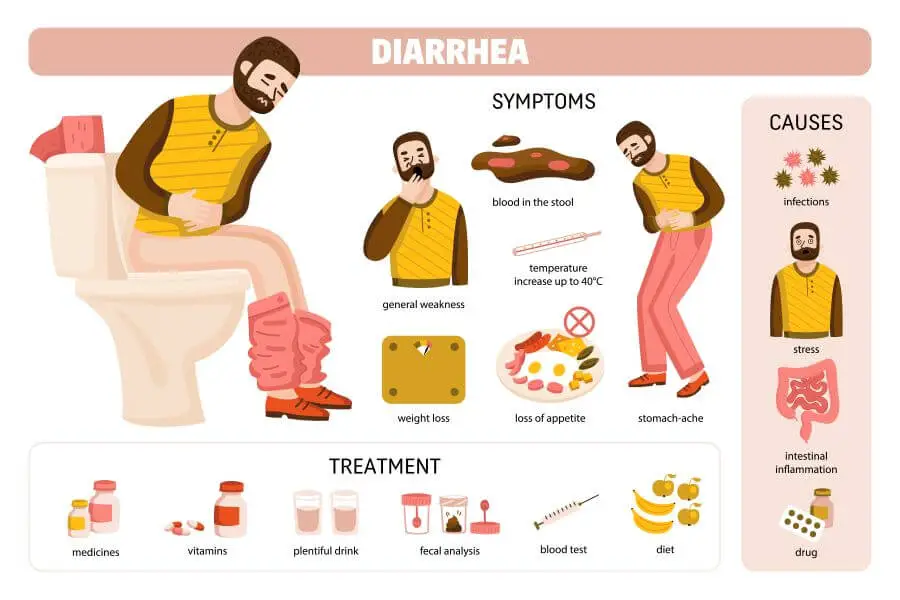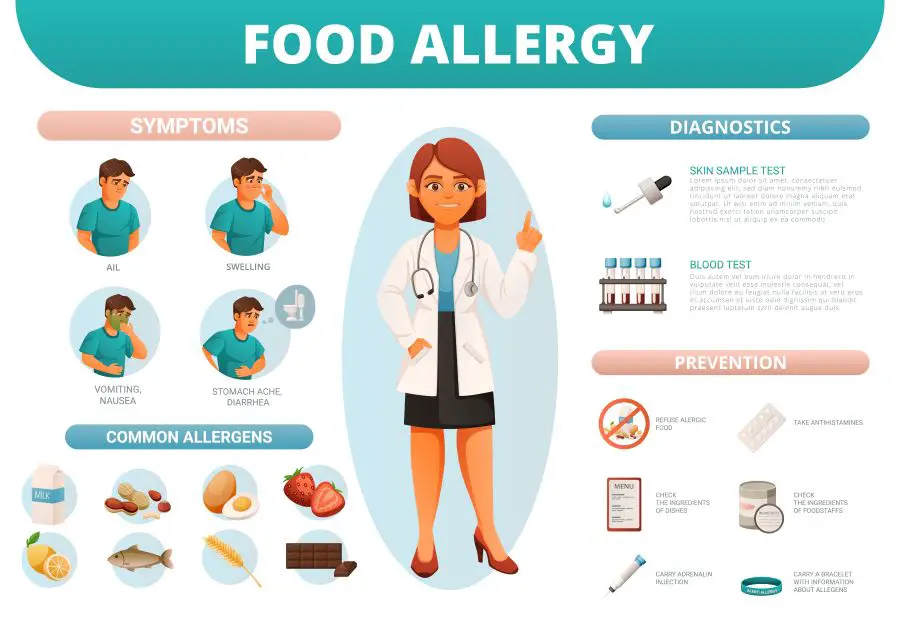With its siren call of convenience, affordability, and taste, fast food has become a staple in many people’s diets. McDonald’s, one of the leading fast-food chains globally, serves millions daily.
However, the aftermath of indulging in these quick meals can sometimes be less than pleasant, often leading to digestive discomfort or even diarrhea. This article explores why this might happen and provides an in-depth guide on what you can do about it.

Understanding the Connection
The connection between fast-food consumption and gastrointestinal distress is not uncommon. The primary reason behind this lies in the composition of fast food.
McDonald’s meals are typically high in fats and sugars, stimulating your digestive system and speeding up bowel movements.
Fats, particularly saturated and trans fats, found in abundance in fast food, take longer to digest than proteins and carbohydrates. This slows your digestion, keeping food in your stomach longer, leading to bloating and discomfort.
On the other hand, the body can respond to this slowed digestion by speeding up food movement through the colon, leading to loose stools or diarrhea.
Sugars, especially fructose, a type of sugar prevalent in the sodas that often accompany fast-food meals, can also contribute to diarrhea. Some people have difficulty absorbing fructose, leading to increased water in the intestines and loose stools.
Moreover, fast food is often low in fiber, a crucial component for healthy digestion. Fiber adds bulk to your stool and helps regulate bowel movements. A lack of fiber can result in watery and loose stools, characteristic of diarrhea.
Potential Allergens and Sensitivities
Another critical aspect is potential allergens or sensitivities to specific food components. People react differently to various ingredients, and while some can tolerate a wide range of foods, others may experience adverse reactions to particular substances.
Dairy products, a common ingredient in many McDonald’s items, can cause problems for people with lactose intolerance.
Lactose is a sugar found in milk and other dairy products, and those with lactose intolerance lack the necessary enzyme, lactase, to break it down properly. This can lead to various digestive issues, including gas, bloating, and diarrhea.
Similarly, gluten, a protein found in wheat, barley, and rye, can cause digestive problems for people with celiac disease or non-celiac gluten sensitivity.
While most McDonald’s burgers are gluten-free if eaten without the bun, cross-contamination can occur, and some sauces and fillings may contain gluten.
Even if you don’t have a diagnosed food allergy or sensitivity, you might still be intolerant to certain types of oils used in frying foods, specific preservatives, or artificial colorings and flavorings used in fast food. These can trigger digestive problems.

Food Poisoning
Food poisoning is another possible cause of diarrhea after eating at McDonald’s. This occurs when food contaminated with harmful bacteria, viruses, parasites, or toxins is consumed.
Symptoms can start within a few hours of eating the contaminated food, including stomach cramps, vomiting, and diarrhea.
Due to the sheer volume of food they prepare and serve daily, fast food restaurants can sometimes be a breeding ground for such contaminants.
Improper storage conditions, undercooking, or poor personal hygiene practices from food handlers can all lead to contaminated food.
Effects of Caffeine
Caffeinated beverages like coffee and some soft drinks can also contribute to diarrhea. Caffeine stimulates the muscles in your digestive system, increasing the pace of peristalsis – the contractions that move food through your digestive tract.
This can lead to more frequent bowel movements and potentially loose stools or diarrhea.
Additionally, caffeine is a diuretic, meaning it increases urine production and can increase fluid loss and salts from your body. If these are not adequately replaced, it can result in dehydration, which can further exacerbate diarrhea.

What Should You Do?
Experiencing diarrhea after eating at McDonald’s can be uncomfortable and inconvenient, but there are several steps you can take to manage this situation. The first and most crucial step is to stay hydrated.
Diarrhea can cause significant fluid and electrolyte loss, and replenishing these is vital.
Over-the-counter medications like loperamide (Imodium) can help slow down food movement through your intestines, reducing the frequency of bowel movements and providing short-term relief.
Probiotics, available as supplements or in foods like yogurt, can also help restore balance to your gut bacteria and aid in recovery.
If your symptoms persist for over a few days, seeking medical attention is essential. Prolonged diarrhea can lead to dehydration and electrolyte imbalances that might require medical treatment.
Furthermore, if you suspect food poisoning, it’s necessary to inform your local health department to prevent others from falling ill.
Prevention is Better Than Cure
While it’s not always possible to prevent diarrhea, being aware of your body’s reactions to certain foods can help. If you notice that you frequently have diarrhea after eating at McDonald’s, consider discussing this with your doctor or a dietitian.
They can help identify potential food intolerances or suggest dietary changes to improve your digestion.
See also: Can You Ask for Fresh Fries at McDonald’s?
Lastly, remember to practice good food safety. Ensure your food is cooked correctly and stored, and refrain from consuming anything past its expiry date. These simple steps can significantly reduce your risk of foodborne illnesses.
In conclusion, while McDonald’s food can occasionally lead to diarrhea due to its high fat and sugar content, potential allergens, or food poisoning, there are steps you can take to manage and prevent this unpleasant condition.
Listen to your body, take care of your digestive health, and don’t hesitate to seek professional advice if needed.






